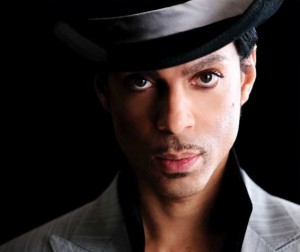 Prince was no stranger to controversy in 1993, but when he changed his name that year to an unpronounceable symbol, there was more behind the move than a desire for publicity and shock value. Later explaining his move as the first step in breaking “the chains that bind me to Warner Brothers,” Prince spent the next seven years essentially waging war on what he felt like was a smothering, artistically limiting contract from his record label at the time—at one point he appeared with the word “Slave” written across his face. Saying his name had become “merely a pawn used to produce more money for Warner,” it was not until his contract with Warner expired in 2000 that he returned to his birth name that he still releases albums under today.
Prince was no stranger to controversy in 1993, but when he changed his name that year to an unpronounceable symbol, there was more behind the move than a desire for publicity and shock value. Later explaining his move as the first step in breaking “the chains that bind me to Warner Brothers,” Prince spent the next seven years essentially waging war on what he felt like was a smothering, artistically limiting contract from his record label at the time—at one point he appeared with the word “Slave” written across his face. Saying his name had become “merely a pawn used to produce more money for Warner,” it was not until his contract with Warner expired in 2000 that he returned to his birth name that he still releases albums under today.
Though few resort to such outlandish antics to draw attention to their contract woes, the list of artists that feel constrained by what they see as bad contracts seems nearly infinite. The fact of the matter is that every artist working with a record company will have to sign a contract to establish a working relationship, and both parties of those contracts will continuously fight to gain as much control of the other as possible through said contracts. And it’s the artists that often come out on the losing end; copious amounts of money and creative control have been sacrificed throughout the years due to stifling contracts.
Record contract troubles have been around as long as record contracts themselves, and the difficulties know no bounds of genres or amount of popularity of the artists involved. In the early part of their career, the Beatles received an extremely low royalty rate from album sales and merchandise sales, due to bad contracts negotiated by then novice manager Brian Epstein in the early 60s when the Beatles were still relatively unknown outside of the small clubs they played in Liverpool and Hamburg. Their situation was complicated severely and lasts to present day when they signed with manager Allen Klein in 1969, who negotiated far more favorable contracts but went on to take a huge percentage of income himself, as well as complicate finances at the Beatles’ record company, Apple, that left the company in turmoil at the time, and in legal battles to this day.
Pink Floyd’s back catalog is reported to be the second most valuable in the world (only behind the Beatles), and, as recently as March of 2010, they are still fighting against contracts signed decades ago. Also echoing the Beatles, TLC had similar trouble resulting from a contract signed early in their career that forced them to file for bankruptcy in 1995, even after selling 11 million copies of their massive hit CrazySexyCool. Toni Braxton has had similar dealings with bankruptcy and used legal action to solve pending contracts with two of her record labels.
It’s not the point of these tales to act as horror stories to scare you away from the music industry, but to illustrate that you must keep a clear business head while you create your art. Additionally, these examples provide the evidence of how important it is to get proper legal help when entering business relationships. Entertainment lawyers and business managers can be your best friends when it comes time to sign those all-important contracts. Work with a team you trust and get as much advice as you can from as many professionals as possible when making these important business decisions. After all, not everyone can pull off a stunt like changing your name to something that no one can pronounce.

